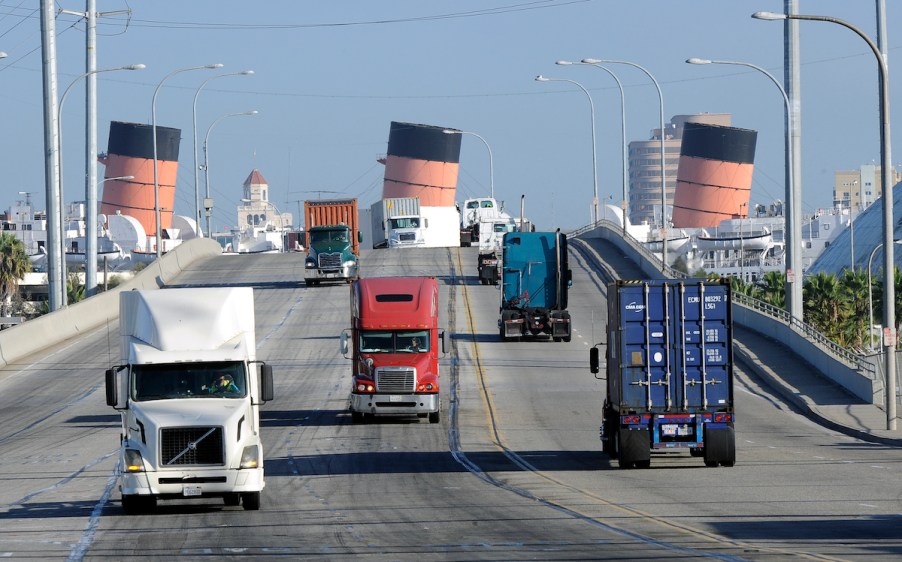
Long Haul Truck Drivers Are Some of the Most Monitored Workers in America
It has been said that truckers are the backbone of the economy. It’s the truckers who get our groceries to the stores and our medicines to the hospitals. Truck drivers are essential workers who also happen to be some of the most monitored workers in America. Safety is important, but are all the extra measures that important?
Solitary truck drivers are never really alone

Many people are attracted to pursuing a trucking career because of the alleged freedom it provides. You live life on the road with no one holding you down. You deliver your load to the assigned destination while living in your truck cab. You aren’t confined to an office in front of a computer for countless hours a day. Well, that’s the dreamy perception of a trucking career, at least. The truth of being a truck driver is much different.
According to The New York Times, the fact is that truckers are some of the most monitored workers in America. They might be physically alone in their truck cab, but they’re anything but alone. Truckers must endure close surveillance during their trips.
Trucking, by nature, is a dangerous job. In fact, 10% of fatal crashes in 2019 in the United States involved large trucks. Trucks have even been called “40 tons of death.” It takes only one wrong move on an interstate, and the family van next to your truck could be crushed.
Safety for truckers and other highway travelers is the top priority. That’s why long-haul truck drivers agree to high levels of monitoring on long trips.
Long haul trucks are full of technology
Truck drivers spend so much time in their rigs that one could say their trucks are a home away from home. Personalizing the cabin helps make their office on wheels feel cozier. But imagine your boss monitoring you at home 24 hours a day. Most full-time remote workers are not subjected to that level of monitoring.
Most big rigs are full of cameras and sensors. These devices watch the road and the brakes. They monitor if the engines are running. They even monitor truck drivers’ eye movements. These sensors can detect if and when truckers take their eyes off the road. Some companies even fire truckers if they detect the drivers looking at their phones. The bottom line for this monitoring is to improve productivity and track trucker hours. The side effect has been improved driving habits, leading to more safety on the road.
Forbes reports that many truck drivers have complained, saying the surveillance amounts to spying. But there is little they can do about it because federal court rulings have said workers have minimal rights to privacy at the workplace. Big rigs are both home and work for truckers. On the flip side, cameras can protect truck drivers. Truckers have been blamed for accidents they did not cause, and surveillance footage exonerated the drivers.
Is there really a trucker shortage?
There’s been concern about a trucker shortage, but the truth is that none exists. There are more licensed truckers now than ever before. However, these truck drivers aren’t returning to their jobs due to poor working and living conditions.
Many truckers are expected to work upward of 11 hours a day with 10 hours of mandated rest time. They must meet breakneck deadlines and go wherever the trucking company sends them. They have to stay completely aware of other motorists while fighting extreme fatigue. Many truck drivers resort to creative, albeit unhealthy, methods to stay awake and alert. There is never enough time to cook healthy meals or get decent exercise.
Considering the low pay, poor benefits, stress, poor working conditions, loneliness, and constant monitoring, it’s no wonder so many seasoned truckers are getting off the road.


